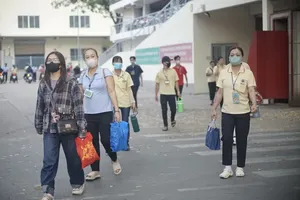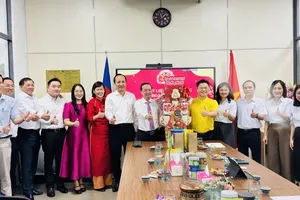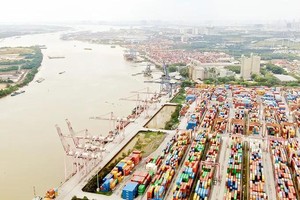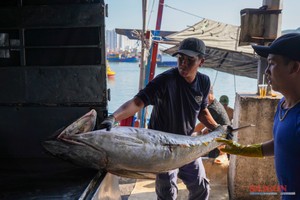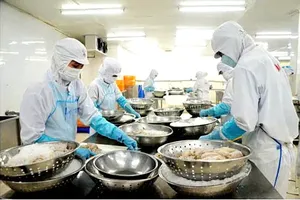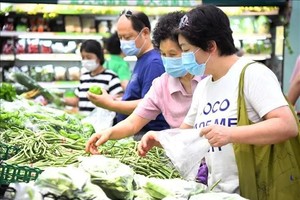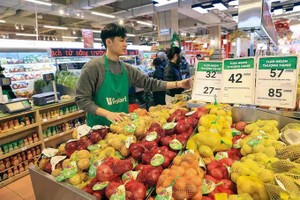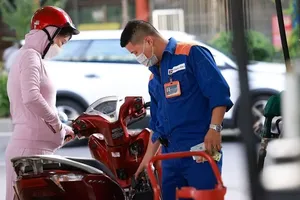The city has launched the latest program, “Green Tick—Certificate of Responsibility,” which is expected to create close cooperation among suppliers, retailers, consumers, and government agencies and a sustainable, safe, responsible, and transparent agricultural supply chain.
To reduce the mixing and smuggling of low-quality goods into supermarkets and stores, the HCMC Department of Industry and Trade has proactively connected with localities and businesses to survey and select products directly from manufacturers.
Businesses eager to participate
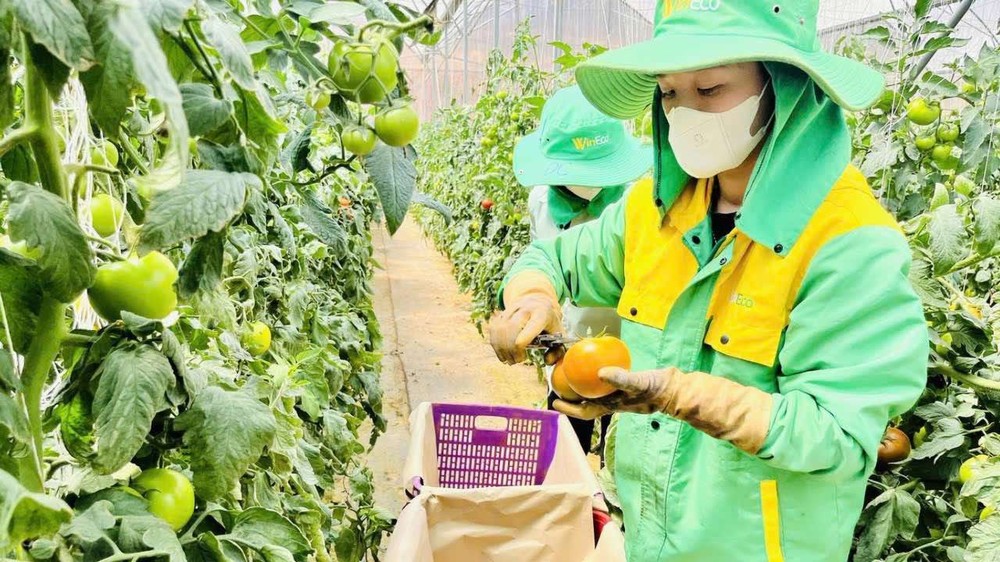
At the end of the year, consumer demand has strongly surged. Suppliers have also seen a sharp increase in orders for fruits, vegetables, and food.
Mr. Le Minh, the owner of a vegetable farm in the Central Highlands province of Lam Dong, said that he had received orders for the 2025 Lunar New Year from convenience stores and supermarkets in Ho Chi Minh City as early as mid-2024. The orders’ top priority is the quality of products. The farm's cultivation processes strictly adhere to the safety standards set by the industries of trade and agriculture, including choosing the best seeds with clear origins and ensuring that the care process complies with the regulations regarding the safe use and application of fertilizers.
Supermarket chains, such as Saigon Co.op, Central Retail, and others, frequently come here to check, supervise, and take product samples for testing, he added.
Livestock farm owners in Dong Nai Province and the Mekong Delta region are committed to ensuring product safety.
In addition, the HCMC Department of Industry and Trade and retail businesses have closely cooperated with local localities to supervise livestock farms to acknowledge their concerns and problems and provide them with financial assistance or technical support.
Mr. Nguyen Ngoc Thang, Deputy General Director of the Ho Chi Minh City Union of Trading Cooperatives (Saigon Co.op), said that quality control is a top priority. The company actively strengthens responsibility for monitoring, production, distribution, and transfer to ensure the safety of products. Products entering the distribution system or reaching consumers are strictly controlled for quality and fully comply with food safety regulations. The enterprise publicizes the production locations and cultivation areas so that consumers and all involved parties can actively monitor the process and product quality.
Eliminating products that do not meet standards within 24 hours
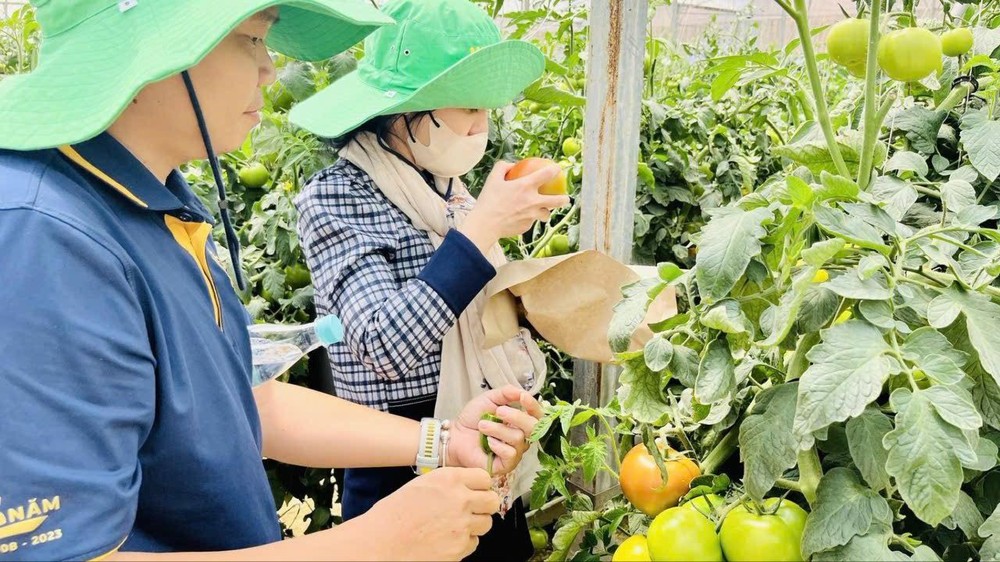
Modern distribution and retail systems in Ho Chi Minh City have established a strict control process, from the source of raw materials and production at factories to the distribution system of products. In addition, there are also internal inspection measures, mobile laboratory testing, sensory evaluations, and regular, random quarantine checks.
When a product doesn't meet standards, the distribution and retail system will immediately suspend unsafe goods and submit a report to the Department of Industry and Trade of Ho Chi Minh City and other distributors. Cases may be taken up within 24 hours of their submission to prevent substandard food from affecting people’s health. Suppliers who deliberately violate standards repeatedly will have their supply contracts terminated.
The agreement applies to products in the fruit group, such as Cat Chu mango, green-skinned orange, green-skinned grapefruit, white dragon fruit, and melon; in the vegetable groups, including green lettuce, bok choy, white cabbage, regular tomatoes, and regular cucumbers; as well as pork and chicken. In the coming time, it will be expanded to cover all products.
The notable feature of this process is the close cooperation between the consuming units. According to the Department of Industry and Trade of Ho Chi Minh City, there are currently eight modern distribution systems in the city that have signed quality control agreements, such as Saigon Co.op, Satra, Aeon Mall, MM Mega Market, Central Retail, Bach Hoa Xanh, Wincomerce, and Kingfood Market.
Accordingly, any supplier that violates quality commitments with one retailer will be considered to have violated quality commitments with all eight retailers. Violation information is shared directly among the eight retailers and provided to relevant departments for handling. If any supplier is found to be in violation, it will severely affect its product consumption, Mr. Nguyen Nguyen Phuong, Deputy Director of the Department of Industry and Trade of Ho Chi Minh City, said.
Since the beginning of the year, the HCMC Market Management Department has inspected and fined hundreds of violations, including cases related to fresh food. Recently, the HCMC Market Management Department, in coordination with interdisciplinary forces, seized 400 kg of illegal pork meat from a store in Thu Duc City.
During the peak period before, during, and after the 2025 Lunar New Year, the HCMC Market Management Department will strengthen the coordination with relevant units to inspect sales points showing signs of violations, especially online stores.
